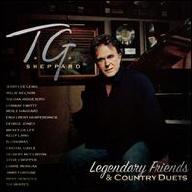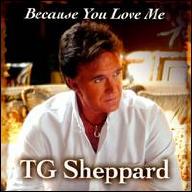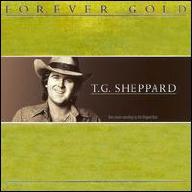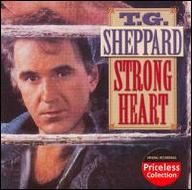As the nephew of the Grand Ole Opry comedian Rod Brasfield, Sheppard (born William Neal Browder, July 20, 1942) was exposed to music at a young age, and throughout his childhood, his mother gave him piano lessons. At the age of 16 he ran away from his home in Humbold, arriving in Memphis where he became a backup vocalist and guitarist in the Travis Wammack Band. During this time, he was billing himself as Brian Stacy, and that was the credit on his first singles for Sonic Records. The label dropped him after all of his records failed, and he moved to Atlantic's Atco division, where he released the rock & roll single "High School Days" in 1966. Though it didn't break nationally, it was a hit in the South, and soon he was opening for the likes of the Beach Boys and the Animals, while befriending Elvis Presley.
Instead of leading him toward a performing career, the minor success of "High School Days" made Sheppard decide to work behind the scenes in the record industry, and later in 1966 he became a record promoter for Hot Line Distributors. Initially, he worked for Stax, but he quickly became the Southern regional promoter for RCA, where he helped push records by his friend Presley, as well as John Denver. While he was working for RCA, he also founded his own production and promotion company, Umbrella Productions. While working at promotion for Umbrella in 1972, he discovered a song by Bobby David called "Devil in a Bottle." Every record company he directed it to over the next year-and-a-half turned the song down, so he decided to record a version himself. Eventually, he convinced Motown's developing country subsidiary Melody Land to license the record. Deciding to use T.G. Sheppard as his performing name, the vocalist released the record in the fall of 1974. "Devil in the Bottle" unexpectedly climbed to number one early in 1975, followed shortly by another number one single, "Tryin' to Beat the Morning Home." Later in the year, "Another Woman" reached number 14, and "Motels and Memories" peaked at number seven, establishing Sheppard as a promising artist. Shortly after the release of "Motels and Memories," Motown was sued by a Los Angeles church over the right to use the name "Melodyland," and the label had to change its name to Hitsville. Sheppard had four other hit singles on Hitsville -- including a cover of Neil Diamond's "Solitary Man" and the number eight "Show Me a Man" (1976) -- before Motown finally decided to shut the label down.
By the time Hitsville collapsed, Sheppard was on his way to becoming a star -- Cash Box magazine named him Best New Male Artist of 1976 -- so he was immediately snapped up by Warner. Sheppard became a genuine country star on the label, partially because his sound -- a smooth fusion of R&B rhythms, pop production, and country songwriting -- became the blueprint for the urban cowboy movement that became country's most popular genre of the late '70s. After having two number 13 singles ("Mister D.J.," 'Don't Every Say Good-Bye") early in 1978, Sheppard released "When Can We Do This Again" in the summer. The single started a streak of 15 straight Top Ten hits that ran for the next five years. During that time, he had no less than ten number one singles: "Last Cheater's Waltz" (1979), "I'll Be Coming Back for More" (1979), "Do You Wanna Go to Heaven" (1980), "I Feel Like Loving You Again" (1980), "I Loved 'Em Every One" (1981), "Party Time" (1981), "Only One You" (1981), "Finally" (1982), "War Is Hell (On the Homefront Too)" (1982), and the Karen Brooks duet "Faking Love" (1982). Over those five years, his style rarely changed; every record was well-crafted, highly produced country-pop highlighted by Sheppard's smooth croon.
Sheppard continued to chart well throughout the latter half of the '80s, and between 1986 and 1987 he had a number one single and three number two records in a row ("Strong Heart," "Half Past Forever (Till I'm Blue in the Heart)," "You're My First Lady," "One for the Money") after he switched labels and signed to Columbia. However, his audience dipped dramatically in 1988, when his radio-ready sound was usurped by a number of new traditionalist performers like Dwight Yoakam, Randy Travis, and George Strait. Between 1989 and 1990, he didn't record at all, and he was dropped by Columbia. In 1991, he returned to the charts with the Curb/Capitol single "Born in a High Wind," but he didn't remain with the label long. For the remainder of the '90s, he continued to tour and play concerts across a country. ~ Tom Roland, Rovi


















